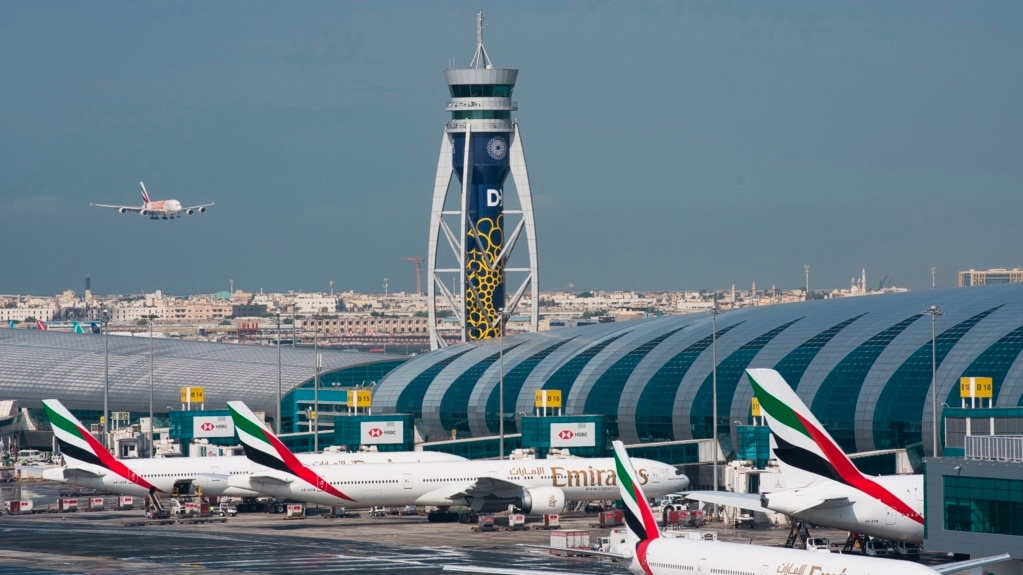International airline Emirates says it successfully flew a Boeing 777 on a test flight with one engine running on a mixture of “sustainable” fuel.
The test flight took place Monday and lasted about an hour. The Emirates plane took off from Dubai International Airport and then headed out into the Persian Gulf before returning to the airport.
The Boeing 777 aircraft was powered by two General Electric engines. One engine ran on the sustainable mixture. The other was powered by traditional airplane fuel to ensure safety.
Emirates' chief operating officer, Adel al-Redha, called the successful test flight “a milestone moment for Emirates and a positive step for our industry.” He said the step demonstrated the airline’s desire to deal with one of the industry’s biggest problems, carbon pollution releases related to air travel.
Emirates is a state-owned airline operated by the United Arab Emirates (or UAE). The UAE is a collection of seven emirates also known individually as sheikdoms.
The ruler of one of the emirates, Dubai, is Sheikh Mohammed bin Rashid Al Maktoum. He described the sustainable fuel used for the flight as a mix “that mirrored the qualities of jet fuel.” The mixture included fuel provided by Neste, a Finnish company, and U.S.-based fuel maker Virent.
Sustainable jet fuel
Virent says it uses plant-based sugars to make the compounds needed for sustainable jet fuel. Neste's fuel is made from vegetable oils and animal fats. Those fuels cut the release of heat-trapping carbon dioxide burned off by engines in flight.
Airline flights release only one-sixth the amount of carbon dioxide produced by cars and trucks, the Washington-based World Resources Institute reports. However, airplanes are used by far fewer people per day than road vehicles. This means flying has a higher per-capita release of carbon emissions.
Airplane and engine manufacturers have been designing more environmentally-friendly versions in recent years. The general goal is to produce less-polluting engines to reduce fuel emissions in an effort to help limit the effects of climate change.
But the measures have also helped cut operating costs related to fuel. Emirates, for example, used more than 5 metric tons of jet fuel last year alone. This amounted to about $3.7 billion of Emirates’ $17 billion in yearly operating costs.
Experts have noted that fuels considered sustainable can be three times or more the cost of traditional jet fuel. This added cost is likely to be passed onto flyers if sustainable fuels became more commonly used across the industry.
It was not immediately clear how much the fuel used in the Emirates' test on Monday cost per barrel. The average jet fuel cost at the end of last week was $146 a barrel, energy company S&P Global Platts reported.
The UAE is a major oil producer and exporter. It is set to host the next United Nations climate negotiations, known as COP28, beginning in November. The UAE has already been criticized by environmental activists for nominating the head of Abu Dhabi's state oil company to lead the U.N. negotiations.
I’m Bryan Lynn.
The Associated Press reported this story. Bryan Lynn adapted the report for VOA Learning English.

